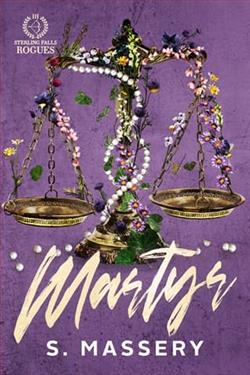Page 56 of What You Wish For
This was personal.
Max always felt like learning had to matter. That we had to build our lessons around things kids cared about and make sure they knew the stakes. And so building the third-grade curriculum around the ocean gave a theme to the whole year.
I even had a whole display in the library, and I’d been reading a retelling ofThe Little Mermaidthat was slightly more Ariel-positive than the animated version they all knew. We’d compare different versions, usually ending in a lively discussion about gender politics in the mermaid kingdom and how giving up your entire identity for love was generally a bad idea.
“Don’t ever give up your voice for anyone,” I told the kids every year.
“Or your tail!” the kindergartners usually shouted.
“Especially not your tail,” I agreed—and then I had them spend the rest of the period in the maker space, drawing me pictures of their merfolk tails.
In my favorite version of the story, the mermaid finds a magic shell that let her do both—have human legs or a mermaid tail, depending on her mood.
How realistic was that ending? I didn’t really care.
Ifmermaidscouldn’t have it all, dammit—who could?
But I’m getting off topic.
That night, after we’d all received Duncan’s epic memo, as we gathered at Babette’s, the mood among the teachers was very…villagers with pitchforks.
I guess you could say that the faculty and staff were not happy.
You could also say that they thought Duncan was the devil.
By the time I arrived, the garden table was stacked high with pizza boxes and at least thirty teachers were stress-eating. And stress-drinking. And somebody had hit the grocery store and cleaned out the bakery—cinnamon rolls, donuts, éclairs. Even a birthday cake that said “Happy Birthday, Stanley” that was on super-special for $1.99 because no one had ever picked it up.
People weren’t even using plates with that birthday cake. Just digging in with their forks like desperate raccoons.
Mrs. Kline was trying to keep order, but being in charge wasn’t really her thing. She had a yellow legal pad and was taking notes as the crowd got louder, and drunker, and more sugared-up.
Let’s just say the canceling of all field trips, all color, all individuality, all creativity, and all fun did not go over too well. It might have been the definitive moment when Duncan fully lost them.
Lost all of us.
“He wants to paint the whole school gray,” Alice kept saying.
“He wants to put bars on everything,” Sadie Lee from the first grade added.
“He’s making the kids wear uniforms,” Carlos said.
“He’s makinguswear uniforms!” Anton the science teacher called out
“Where’s he getting the money for all this?” Mrs. Kline added.
“How is this happening?” Donna demanded.
“How did he get approval?” the school nurse wanted to know.
As I watched the teachers panicking, I came to a conclusion. Who Duncan used to be didn’t—couldn’t—outweigh who he had become.
I could not—and absolutelywould not—let him turn our school into a prison.
He had to go.
We had to find a way to get rid of him.
I took Mrs. Kline’s yellow pad and her pen. Then I stood up on the back steps and called everybody to order by shouting, “One! Two!”















